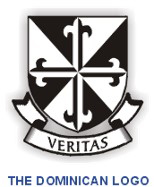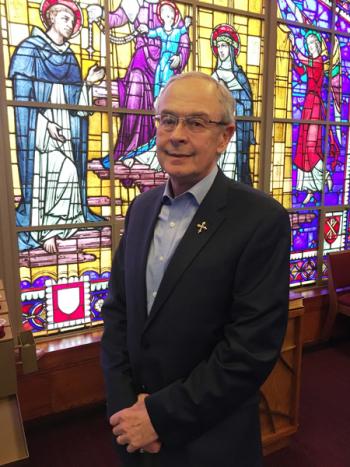There came a time in John Tucker’s life when he realized he “wanted to be more than a regular Catholic,” so he began looking into the various orders of lay people, sometimes called Third Orders, within the Church.
A retired utility company engineer, Tucker was drawn to the Lay Dominicans, in part because of their commitment to praying, studying and sharing the fruits of that study.
Lay Dominicans study Scripture, Church teachings and contemporary issues in light of the Catholic faith, and then share what they learn for the salvation of souls – in their workplaces, schools, homes, local communities and especially within their our own parishes.
“The order opened to me a tremendous respect and reverence for Church, its teachings, Scripture and the lives of the saints that I didn’t have before,” he said.
“It gives me a purpose and vision beyond myself, and provides a happiness that transcends what I expected.”
Tucker is president of Region 4 of the Lay Dominicans, which includes nine fraternities in Pennsylvania and New Jersey. There are two fraternities in the Diocese of Allentown, at Notre Dame of Bethlehem and Sacred Heart in Bath.
There are 15 to 20 men and women perpetually professed or in various stages of formation in the two fraternities in the Diocese.
St. Dominic was a Spanish priest and founder of the Dominican Order of Preachers. The organization of his lay followers, now formally called the Lay Fraternities of St. Dominic, was founded in 1285.
Today, Lay Dominicans are part of a worldwide organization, consisting of men and women, singles and couples, living a Christian life with a Dominican spirituality in the secular world.
Lay Dominicans have a passion for the Word of God, and are committed to the order’s four pillars – prayer, study, community and apostolate.
Their apostolates include such things as visiting hospice patients and nursing home residents, supporting women in pro-life agencies, and assisting at food banks. They lead the rosary and prayer, and work with people in their parishes to teach the Catholic faith.
Lay Dominican life is a vocation, said Tucker, and as such it requires a life-long commitment. It requires a time of preparation and formation.
It’s not a decision made lightly, he said, but rather, one made in a series of steps, first answering the question: “Is God inviting me to contact a Lay Dominican Fraternity and learn more?”
If you sense that invitation, visit the Lay Dominican website for more information and to learn how to contact a fraternity: www.laydominicans.org.








